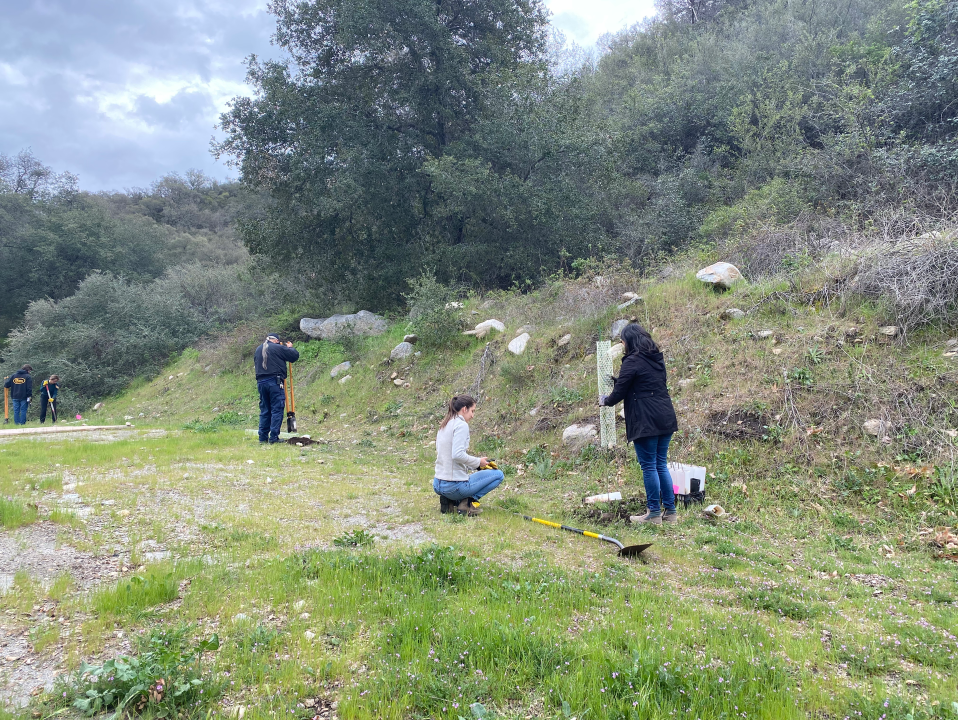Resilient Restoration
The Resilient Restoration project, funded by the California Strategic Growth Council's Climate Change Research Program, promotes Tribal resilience by developing knowledge and supporting actions that enhance persistence of cultural practices with a focus on preserving the ecosystems and plant species that are integral to Tribal communities.

Acorns were a significant staple of the diet for tribal nations in Southern California in the past. They were dried, deskinned, powdered and made into drinks and jelly like sides that accompanied barbecued meat, beans and rice. High in protein and good fats, they were also a key source of protein in the winter months when game was scarce. But this staple has become far less common in native diets.
Megan Jennings and Lluvia Flores-Renteria and their student researchers from SDSU have been collecting acorns from reservations, with tribal permission, and germinating them in greenhouses. They are studying which acorns are the most tolerant to high temperatures and drought conditions so they can replant the most climate-hardy acorns on tribal land.
This is a collaborative effort of the Climate Science Alliance's Tribal Working Group, San Diego State University and the University of California Riverside.
